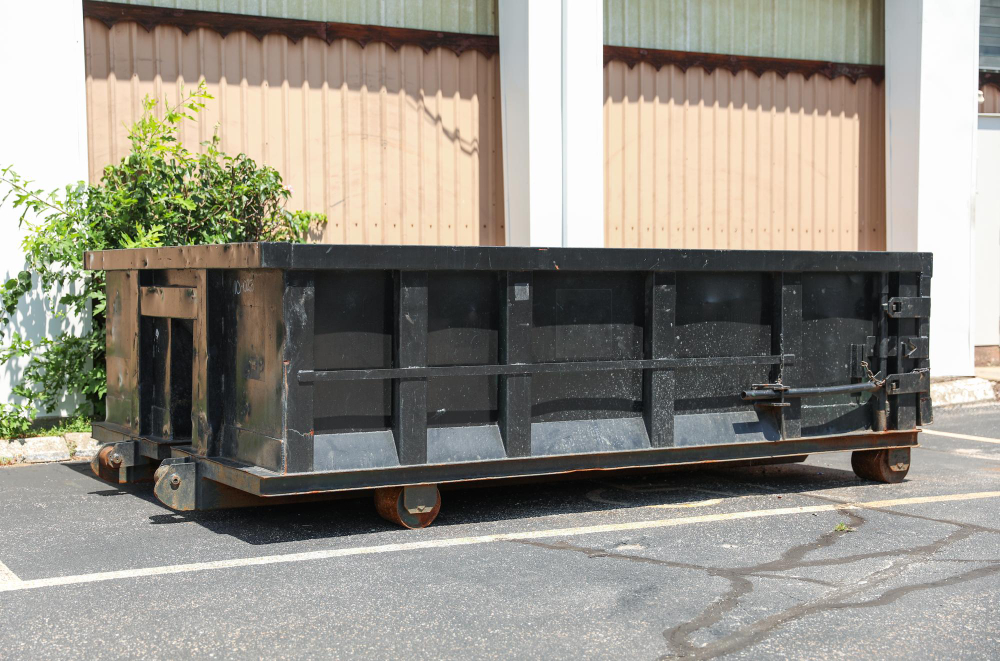


When you're tackling a major home renovation, construction project, or extensive cleanup, regular trash pickup simply won't cut it. That's where roll off dumpster rental becomes essential. These large, temporary waste containers offer the perfect solution for managing substantial amounts of debris and waste materials efficiently.
Understanding the fundamentals of roll off dumpster rental can save you time, money, and headaches on your next project. From choosing the right size to navigating local regulations, this comprehensive guide covers everything you need to know before renting your first dumpster.
A roll off dumpster is a large, rectangular waste container designed for temporary use during construction, renovation, or cleanup projects. The name "roll off" comes from the delivery method—these dumpsters are transported on specialized trucks and literally rolled off the back of the vehicle onto your property.
Unlike permanent dumpsters you might see behind commercial buildings, roll off dumpsters are open-topped containers that sit on the ground. They feature a hinged door on one end, making it easy to walk materials directly into the container rather than lifting everything over the sides.
These containers are built to handle heavy loads and various types of waste, from household junk to construction debris. The sturdy steel construction ensures they can withstand the weight of concrete, wood, metal, and other heavy materials commonly generated during renovation projects.
Roll off dumpsters come in several standard sizes to accommodate different project needs. Understanding these options helps you choose the most cost-effective solution for your specific situation.
The smallest option, 10-yard dumpsters measure approximately 12 feet long, 8 feet wide, and 3.5 feet high. These containers are perfect for small home projects like bathroom renovations, garage cleanouts, or small landscaping jobs. They can typically hold about 3-4 pickup truck loads of debris.
Medium-sized projects benefit from 20-yard dumpsters, which measure roughly 22 feet long, 8 feet wide, and 4.5 feet high. These work well for kitchen renovations, flooring replacement projects, or moderate home cleanouts. They can accommodate approximately 6-8 pickup truck loads of materials.
For larger projects, 30-yard dumpsters provide ample space at approximately 22 feet long, 8 feet wide, and 6 feet high. These are ideal for major home additions, large-scale cleanouts, or significant landscaping projects. They hold roughly 9-12 pickup truck loads of debris.
The largest standard size, 40-yard dumpsters measure about 22 feet long, 8 feet wide, and 8 feet high. These containers are typically used for major construction projects, complete home renovations, or large commercial cleanouts. They can hold approximately 12-16 pickup truck loads of materials.
Roll off dumpster rental serves a wide variety of projects, each with unique waste management needs.
Kitchen and bathroom remodels generate substantial amounts of debris, including old cabinets, flooring, drywall, and fixtures. A roll off dumpster provides a convenient central location for all renovation waste, keeping your property clean and organized throughout the project.
New construction and major additions produce large quantities of materials like lumber scraps, drywall, packaging materials, and other construction debris. Having a dumpster on-site ensures efficient cleanup and helps maintain safety standards.
Roof replacements create heavy debris, particularly old shingles, underlayment, and nails. Roll off dumpsters are essential for roofing projects because they can handle the weight and volume of roofing materials while providing easy access for disposal.
When clearing out entire homes or large estates, the volume of items can be overwhelming. Roll off dumpsters provide the capacity needed to handle furniture, appliances, personal belongings, and other accumulated items efficiently.
Large landscaping jobs involving tree removal, land clearing, or major garden renovations generate significant organic waste. Roll off dumpsters can accommodate branches, stumps, soil, and other landscaping debris.
Understanding disposal restrictions is crucial for a successful rental experience. Most roll off dumpster rental companies have specific guidelines about acceptable materials.
Most dumpsters can accommodate construction debris like wood, drywall, concrete, asphalt, metal, and roofing materials. Household items including furniture, appliances (with proper preparation), clothing, and general household waste are typically accepted.
Yard waste such as branches, leaves, grass clippings, and small amounts of dirt or sand are usually permitted. However, check with your rental company about specific limitations on organic materials.
Hazardous materials are universally prohibited in roll off dumpsters. This includes paint, chemicals, batteries, motor oil, gasoline, and other flammable or toxic substances. These items require special disposal methods and facilities.
Electronics like televisions, computers, and other electronic devices often cannot be disposed of in regular dumpsters due to environmental regulations. Many areas have specific e-waste recycling programs for these items.
Certain appliances, particularly those containing refrigerants like refrigerators and air conditioners, may require special handling or additional fees. Always inform your rental company about any appliances you plan to dispose of.
Renting a roll off dumpster involves several straightforward steps, but planning ahead ensures a smooth experience.
Start by assessing your project scope and estimating the volume of waste you'll generate. Consider the types of materials you'll be disposing of, as this affects both size requirements and rental costs. When in doubt, it's often better to rent a slightly larger container than to risk overfilling a smaller one.
Research local dumpster rental companies and compare their services, pricing, and customer reviews. Look for companies that offer transparent pricing, reliable delivery and pickup services, and good customer support.
Contact your chosen rental company to schedule delivery for the start of your project. Provide details about your project timeline, the types of materials you'll be disposing of, and any access considerations for your property.
Before delivery, identify the best location for your dumpster. Choose a flat, stable surface that can support the weight of the container when full. Ensure there's adequate clearance for the delivery truck and that the location won't interfere with daily activities.
If you're planning a project in Orlando, FL, there are specific local factors to consider when renting a roll off dumpster.
Orlando has specific regulations regarding dumpster placement and permits. Depending on your property and the dumpster's location, you may need a permit from the city. Dumpsters placed on public property or blocking traffic typically require permits, while those placed entirely on private property often don't.
Orlando's climate brings frequent rain and occasional severe weather. Consider covering your dumpster during heavy rains to prevent waterlogging, which can increase weight and disposal costs. Plan your rental timing around potential weather disruptions.
Many Orlando neighborhoods have homeowners' associations with specific rules about temporary dumpster placement. Check with your HOA before scheduling delivery to ensure compliance with community guidelines.
Maximizing the value of your roll off dumpster rental requires strategic planning and efficient use of space.
Load heavy items first, placing them evenly across the bottom of the container. This creates a stable base and prevents shifting during transport. Break down large items when possible to maximize space utilization.
Fill gaps with smaller items, but avoid exceeding the container's rim. Overfilled dumpsters create safety hazards and may result in additional fees or pickup delays.
Always follow safety protocols when loading your dumpster. Wear appropriate protective equipment, including gloves, safety glasses, and sturdy footwear. Never climb into the dumpster or allow children to play around it.
Be mindful of weight distribution and avoid creating unstable piles that could collapse or cause injury. If you're unsure about disposal procedures for specific items, contact your rental company for guidance.
Roll off dumpster rental simplifies waste management for projects of all sizes. By understanding the basics—from sizing and restrictions to local regulations—you can make informed decisions that keep your project on track and within budget.
Successful dumpster rental starts with choosing the right size for your project and working with a reputable local company that understands your area's specific requirements. Proper planning and preparation ensure your rental experience is smooth and cost-effective.
If you need roll off dumpster rental in Orlando, FL, contact Tip Top Containers today to request a quote. Their experienced team can help you choose the right size container for your project and navigate local regulations to ensure a successful rental experience.